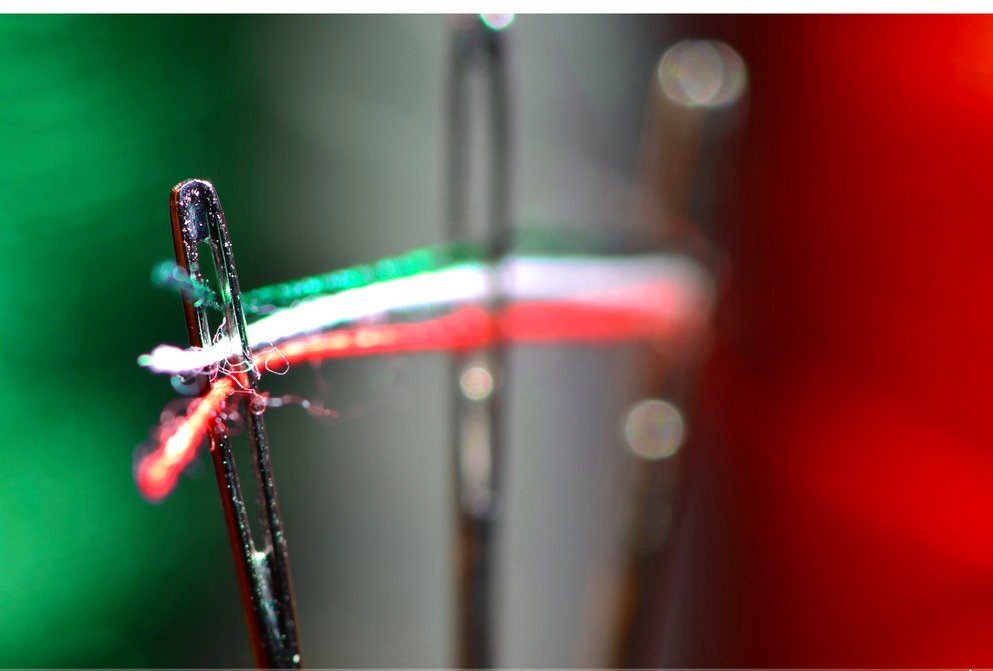Da questo numero iniziamo la collaborazione con John Peter Sloan – La Scuola che tradurrà per noi un articolo selezionato fra quelli , corredandolo di commenti riguardanti la grammatica o qualche espressione particolare che possa facilitare nell’uso e nella comprensione della lingua. Abbiamo scelto come partner JPS – La Scuola per il metodo estremamente innovativo e informale in perfetto equilibrio con FiordiRisorse e per i risultati eccellenti che il metodo sta riscontrando in tutto il mondo.
Per chi avesse perso l’articolo di Antonio Caprarica, eccolo riproposto in versione inglese. A colori alcune nozioni grammaticali e di espressione. La traduzione è del simpaticissimo e bravissimo Allen Montrasio che troverete nella lista degli autori del nostro giornale.
As a self-confessed, unrepentant anglophile, I have always been in awe cioè provare un’ammirazione rispettosa. Quella che noi italiani riserviamo a chi conosce gli arcani dell’inglese, e gli inglesi tributano all’italian lifestyle. – and somewhat envious – of the quality of public debate that takes place in the shadow of Big Ben. As a point of reference, without even moving away from the neighbourhood, take any Q&A session in Westminster, just next door, and listen to the exchanges between the Prime Minister and the MPs who engage him on different topics. It’s a ping pong of heated one-liners un classico dello humour inglese: freddure fulminanti lunghe una riga! an exchange of sarcasm and hard facts, fatti inconfutabili; chi ci prova va a sbattere contro una fallacia logica e capisce perché sono così duri pulling no punches letteralmente “non trattenere i pugni”, ma non c’entra con la boxe: significa non andare troppo per il sottile, anche se in Parlamento qualche pugno ogni tanto rischia di volare davvero. against the opponent, but also being clear for the benefit of the spectator. Most of all, speakers always keep an eye on time: questions and answers never last more than two-three minutes; all in all, it’s an exercise in concision, clarity and performing for the public; the exact opposite of the verbose, sleepy Question Time of the Italian Parliament.
But this isn’t just about our serially tedious politicians.
The virtue of communicating and making a half-decent use of ars retorica seems to have mysteriously escaped from the land of Cicero. The reports of the great ambassadors of the Republic of Venice still give us a wonderfully lucid portrait of the world of a few centuries ago, but today’s diplomats of little Italy are silently, but firmly discouraged from sharing their experiences with the public. A large part of the Roman leading classes, firmly entrenched in their clubs on the banks of the Tiber, are convinced that “abroad” starts in Settebagni (A suburb on the immediate outskirts of Rome). Where at least they speak the same language. And let’s da usare sempre come invito be honest: Questa espressione, facile facile, significa “siamo onesti”, ovvero “diciamola tutta” te la segnalo perchè è un incoraggiamento che mi piace molto the reluctance to learn a foreign language – even the bare minimum of pidgin English you need to order a cup of coffee – is not just a prerogative of politicians and bureaucrats.
In spite of nonostante/a dispetto di, e infatti, a dispetto del fatto che l’inglese è una lingua a volte dispettosa, praticarla può essere divertente all the talk of globalisation, not even the business community does much better. With the exception of the upper echelons of large corporations, very often made up of graduates non dei Carabinieri, ma laureati in università from the most prestigious British and American schools, the majority of our businessmen seem to consider the language of Shakespeare as one of the inconveniences of foreign travel, just like the lack of decent coffee or having to forgo a good plate of pasta.
Fazio, the Anglo-Ciociarian
A dozen or so years ago, the first edition of the Anglo-Italian Keynes-Sraffa economics award in London was an unforgettable occasion. It was presented by the governors of the respective Central National Banks, our Antonio Fazio and Sir Eddie George. Created Baron George of St. Tudy at the end of his career, Eddie was probably the most humorous ne serve tanto per cercare di capire gli inglesi e il loro spirito man ever to run the Bank of England. The son of a modest employee of the Royal Mail, he had won a scholarship at Dulwich School and had served the Country at the Armed Forces’ Language Centre. Not to waste time, he had learned Russian there (maybe today he would have turned his hand che faceva Sir Eddie, ruotava le mani? Non proprio: questa frasetta significa “provare a fare una cosa nuova” at Mandarin).
Unfortunately, Fazio was the first to speak, almost delivering a death blow to the audience in the process. In Italian? If only… It was almost forty minutes’ worth of speech, read in a flat, monotone language beyond the comprehension of most attendees Anche se erano evidentemente armati di santa pazienza, questi attendees non attendevano nessuno, perché questo false friend significa seguire, partecipare. It was – it finally became clear – Anglo-Ciociarian [2], and the discovery brought many people to question To be or not to be, this is the question, qui però non stiamo parlando di una domanda, perché siamo in presenza di un verbo. Significa “mettere in discussione”, by the way the value of Fazio’s studies at Boston’s MIT. Finally, it was Sir Eddie’s turn; he was – admittedly – starting with a language advantage, but his five minutes (no more) of witty, light-hearted analysis of the present were a delight for the ears.
OK, so humour is not our strongest asset, steeped as we are in melodrama, but what if we tried to at least improve our English? At a high-flying business dinner hosted by the Windsor Royal Polo Club, I heard the president of Italy’s largest State-owned company welcome the guests by reading in Tuscan-American from three slips of paper – and yet, he too had apparently specialised at the MIT, what kind of language do they speak in Boston?
Business English and the universe of languages
You may object that the French too refuse to speak English, even at International events. President Chirac famously walked out of a European Industrialists’ Association meeting when the leader of the French industrialists addressed the audience with a genial Vuoi fare il figo con gli amici? Questo è il false friend che fa per te. Basta ricordare che non significa geniale, ma cordiale. Usalo bene e il genio sarai tu “good morning, ladies and gentlemen”. But the French do it to reassert their lost grandeur, while for many of our “Captains Courageous” abroad, quite the opposite is true: they are simply unable to go beyond the boundaries of our old, arrogant provincialism. A language is a key that opens not only cultural, but also social and business worlds: it’s hard to do good business To do, fare. E to make? Anche quello è fare, ma sono due fare diversi: do è eseguire, make è creare. Se il concetto è astratto, la cosa si fa complessa: è do business – fai affari -, ma make a deal – fai un affare. Fai attenzione! if you have to resort to an interpreter, rather than be able to use the modern day’s “lingua franca”: English.
Luckily for us, there are hundreds of thousands of young men and women who have been persuaded by the recession to pack their bags L’altra sera dovevo prendere una birra con un amico, ma mi ha tirato un pacco. Mi sono offeso e gli ho detto che poteva fare le valigie: “pack your bags!” and fly to London or New York. They are the businessmen of Tomorrow, even today actually, and they are not just digital natives but also – most importantly – native anglophones. So really, as Saint Austin said, ex malo bonum. And pardon the Latin. Questo è latino vero, ma se in inglese dici “pardon the French”, vuol dire che hai appena detto una parolaccia, e quando ce vo’, ce vo’.
[1] Ciociaria is a region South of Rome
[2] Fazio originates from Ciociaria



